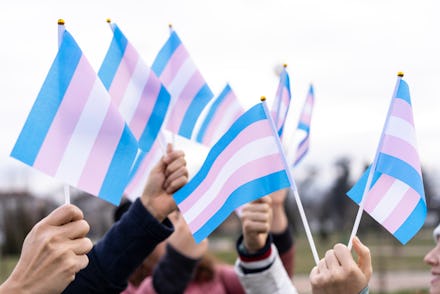A federal court ruled that gender dysphoria is a protected disability
The U.S. Court of Appeals for the Fourth Circuit found that while being transgender is not a disability, gender dysphoria is a condition that requires care.

Kesha Williams has been receiving hormone replacement therapy for more than 15 years. That ended when she was sent to a prison in Fairfax, Virginia, for aiding her boyfriend in the sale of illegal drugs. There, Williams, who is trans, has been housed alongside men, referred to as a man, and been regularly searched by men — all while largely being denied the gender-affirming care that she was receiving for nearly two decades.
That, according to the U.S. Court of Appeals for the Fourth Circuit, violates the Americans With Disabilities Act. In a landmark decision handed down this week, the appellate court ruled that gender dysphoria is a medical condition that deserves care and that conditions that affect trans people are protected.
The court is the first in the country to reach this ruling, which could play a significant role in extending disability protections to the trans community. The ruling explicitly notes that “being transgender is not a disability,” but rather acknowledges that medical conditions that affect trans people are real and should be covered by the same laws that protect other populations.
Should the appellate court’s decision hold — Williams’s case will go back to the district court, where the judge previously ruled that it could not go forward — it would mark the potential for a major expansion of protection for trans people. The Americans With Disabilities Act provides accommodations in the context of public spaces and employment, among other contexts. It would serve as a guarantee that trans people have their medical needs considered and protected in these spaces.
The ruling upends outdated language found in the ADA, passed in 1990, which initially excluded “gender identity disorders not resulting from physical impairments.” In her decision, Judge Diana Gribbon Motz wrote, “Reflecting this shift in medical understanding, we and other courts have thus explained that a diagnosis of gender dysphoria, unlike that of ‘gender identity disorder,’ concerns itself primarily with distress and other disabling symptoms, rather than simply being transgender.”
In short: Being trans isn’t a disability, but trans people do experience medical conditions that are disabilities, and those are protected under the ADA.
For Williams, that means the possibility of once again being recognized as a woman and receiving the hormone therapy that she had received for years before it was denied to her in prison. For other trans people, it could mean additional protections and accommodations that have previously been denied to them for no valid reason.